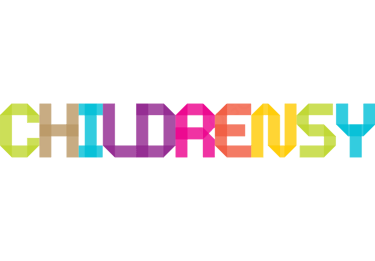Coding for Kindergarteners:
Introducing Coding Concepts in Early Education Curriculums
Kylo B
4/13/2024
Coding for Kindergarteners: Introducing Coding Concepts in Early Education Curriculums
In the digital age, coding has become an essential skill for future success, and introducing coding concepts at an early age can cultivate problem-solving abilities, critical thinking skills, and creativity in young learners.
Kindergarten programs are increasingly incorporating coding into their curriculums to provide foundational exposure to computational thinking and programming logic.
In this article, we'll explore the benefits of teaching coding to kindergarteners and practical ways to introduce coding concepts in early education settings.
Why Teach Coding to Kindergarteners:
Teaching coding to kindergarteners offers numerous benefits that support cognitive, academic, and social-emotional development:
Promotes Logical Thinking: Coding activities encourage sequential thinking, pattern recognition, and logical reasoning, laying the groundwork for computational thinking.
Enhances Problem-Solving Skills: Coding challenges foster problem-solving skills and resilience by requiring students to troubleshoot and debug algorithms.
Develops Creativity: Coding empowers kindergarteners to express creativity through coding projects, animations, and interactive stories.
Fosters Collaboration: Coding activities promote collaboration, teamwork, and communication among young learners working on shared projects.
Introducing Coding Concepts in Kindergarten:
Early education curriculums can integrate coding concepts in developmentally appropriate ways:
Unplugged Activities: Begin with unplugged coding activities that use hands-on materials to introduce basic concepts like sequencing, loops, and conditional statements. Use activities like sequencing story cards or creating simple obstacle courses.
Visual Programming Tools: Introduce age-appropriate visual programming tools designed for young learners, such as ScratchJr, Kodable, or Bee-Bot. These platforms use block-based coding languages to create animations and games.
Robotics and Manipulatives: Incorporate robotics and tangible coding toys that allow kindergarteners to program robots through physical interactions. Use tools like Cubetto or Code & Go Robot Mouse.
Creative Projects: Encourage kindergarteners to create interactive stories, animations, or simple games using coding concepts. Emphasize exploration and experimentation to spark curiosity and innovation.
Integrated Learning: Integrate coding activities into interdisciplinary lessons, connecting coding with literacy, math, science, and art concepts. For example, code a story retelling activity or a math-based game.
Key Coding Concepts for Kindergarteners:
Focus on foundational coding concepts suitable for kindergarteners:
Sequencing: Arrange steps in a logical order to achieve a desired outcome.
Loops: Repeat actions or commands to create patterns or animations.
Conditional Statements: Use simple if-then statements to make decisions in coding projects.
Events and Interactions: Trigger actions based on user inputs or interactions within coding environments.
Benefits Beyond Coding Skills:
Teaching coding in kindergarten goes beyond programming skills:
Develops Computational Thinking: Encourages problem decomposition, pattern recognition, and algorithmic thinking.
Enhances Early Math Skills: Reinforces mathematical concepts such as sequencing, patterns, and spatial reasoning.
Cultivates Digital Literacy: Prepares students for a technology-driven world by fostering familiarity with digital tools and interfaces.
Promotes Persistence and Resilience: Encourages perseverance and a growth mindset when facing coding challenges and debugging errors.
Engaging Parents & Educators:
Foster collaboration between parents and educators to support coding education in kindergarten:
Provide resources and guidance for parents to reinforce coding concepts at home through games and activities.
Offer professional development opportunities for educators to build confidence in teaching coding and integrating technology into early education.
Introducing coding concepts in kindergarten empowers young learners with essential skills for the future while fostering creativity, problem-solving abilities, and collaboration.
By integrating age-appropriate coding activities into early education curriculums, schools can ignite children's curiosity, enthusiasm, and confidence in exploring technology and computational thinking.
Let us embrace coding as a foundational skill in kindergarten education, nurturing a generation of innovative thinkers and lifelong learners equipped to thrive in an increasingly digital world.
Through playful and engaging coding experiences, kindergarteners develop the skills and mindset necessary for success in academics and beyond.

